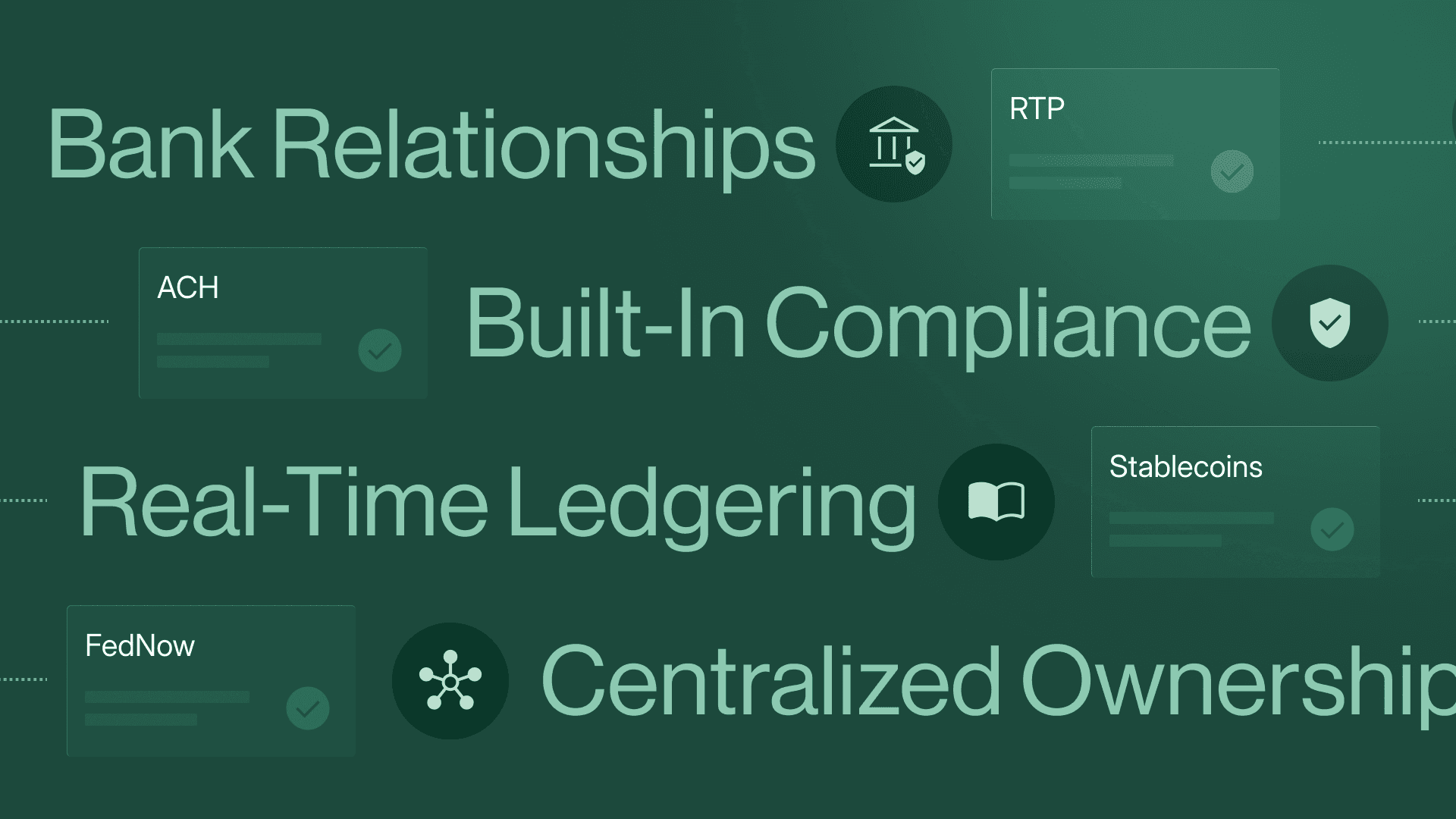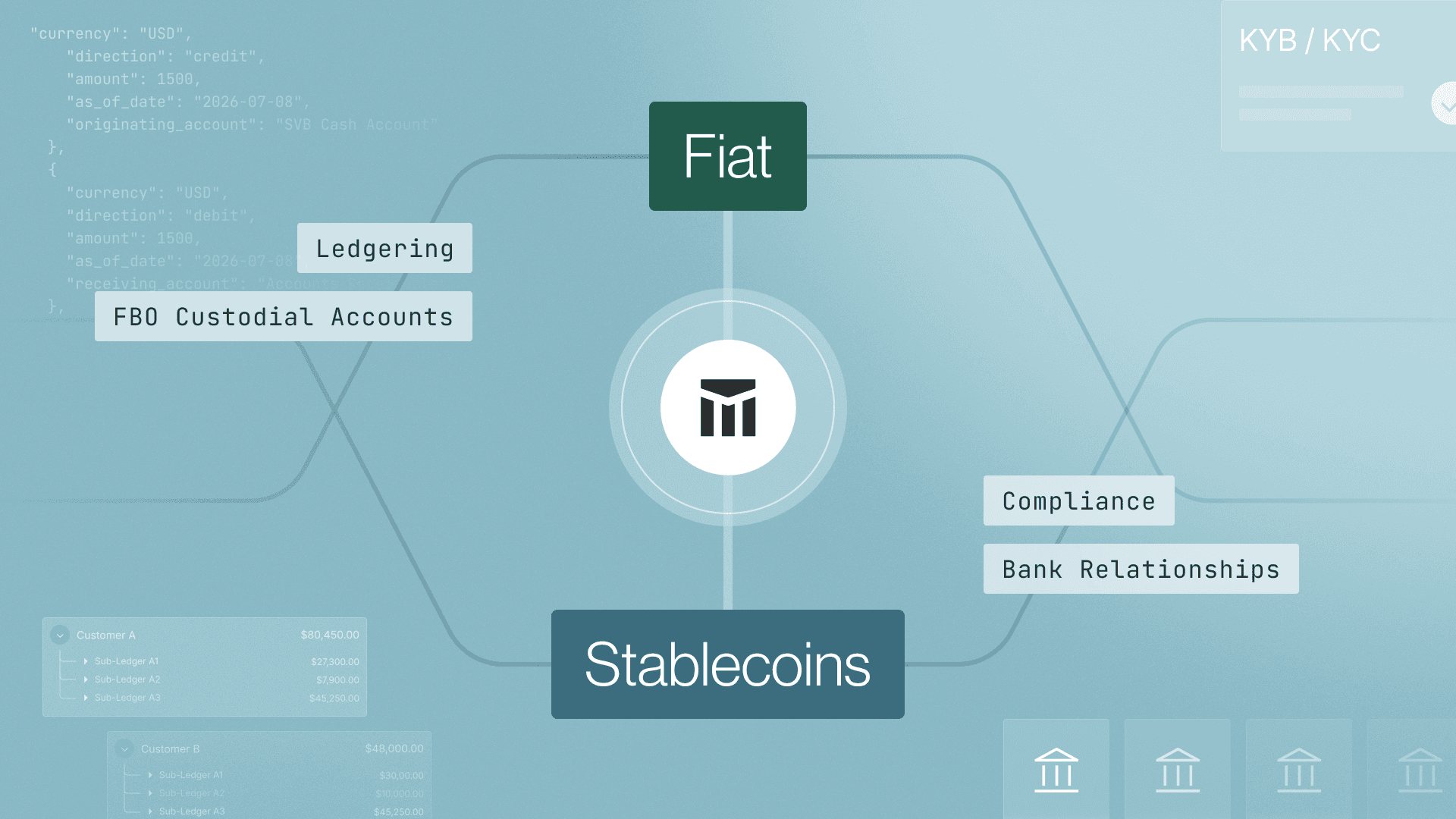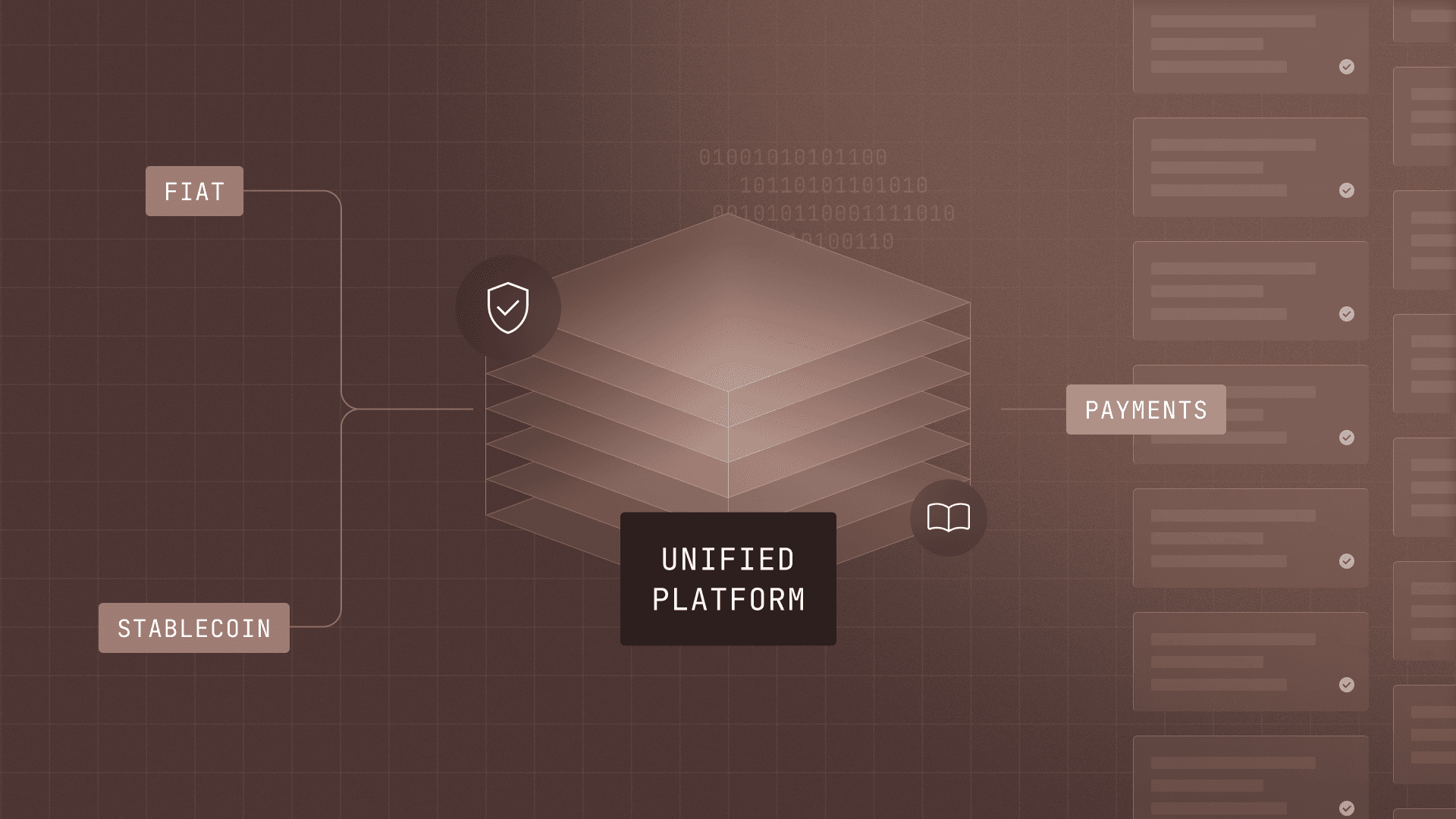Introducing Modern Treasury Payments. Built to move money across fiat and stablecoins. Learn more →
How Marketplaces Use Modern Treasury
Marketplaces are a growing industry, and their payment operations can get increasingly complex. This guide explores the ways Modern Treasury can help streamline processes for all types of marketplaces as they scale.
Explore with AI
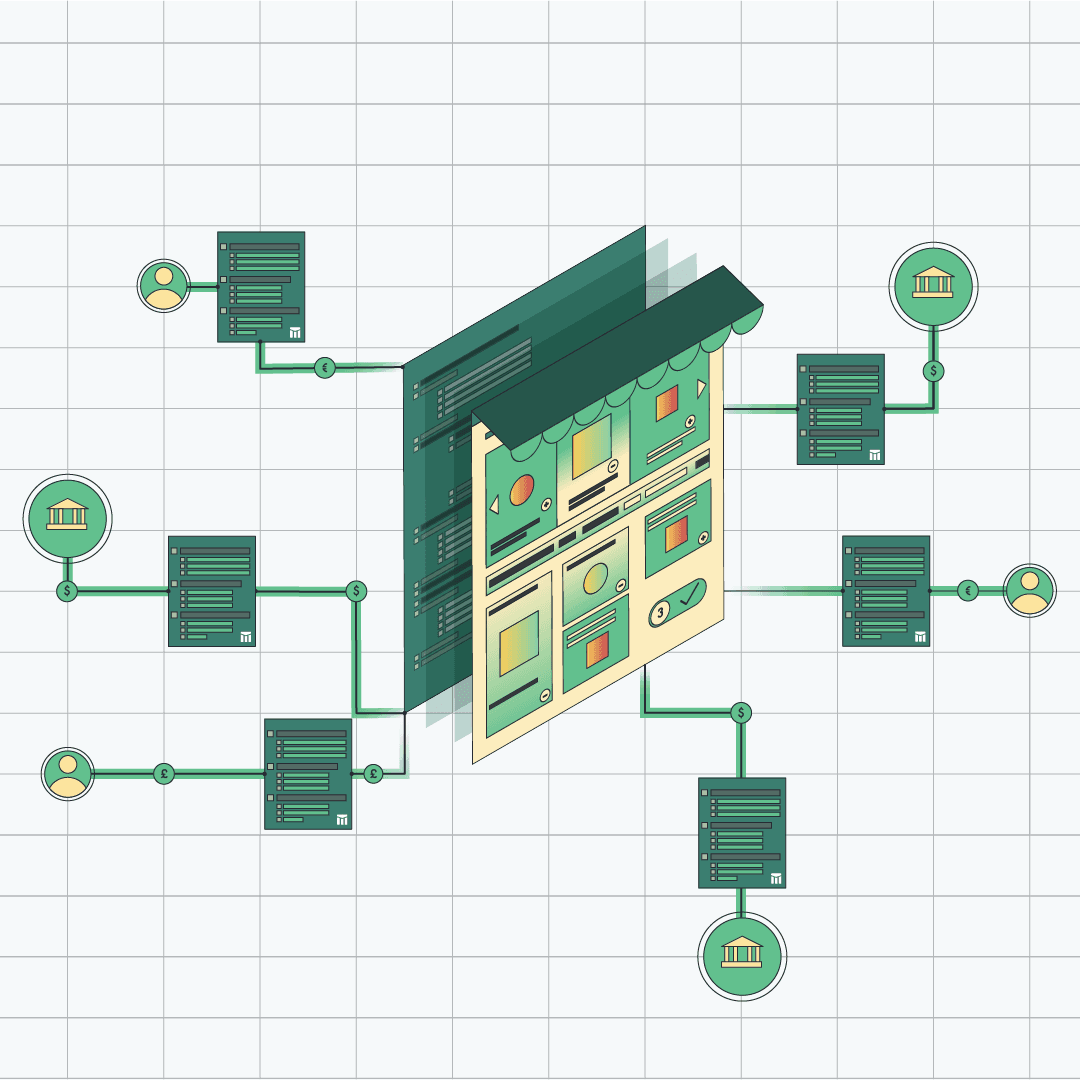
Modern Treasury helps companies of all sizes across different industries. One of the broadest industries we serve are marketplaces, which are companies that facilitate transactions between buyers and sellers. Some of the largest technology companies in 2021 are marketplaces: in aggregate, they are worth five trillion dollars today.
As marketplaces scale, their payment operations become more complex. In this article, we'll explore how Modern Treasury can help.
Payment Operations in the Modern Marketplace
It's broadly understood as a best practice that a marketplace should collect payments and sit on the flow of funds. It's easier to monetize and harder to get disintermediated if you can charge a percentage fee from the transaction, as Bill Gurley put back in 2013. With that comes a host of questions:
- How do you handle payments at scale?
- Should you hold funds on behalf of buyers and sellers? If yes, for how long?
- What payment methods should you use?
- How do you manage reconciliation and accounting?
Let's walk through three sample marketplaces and their payment operations needs.
B2B Marketplaces Need Flexibility
Let's say you're building Modern Lumber, the first B2B marketplace for lumber products. You have businesses on both sides of the spectrum buying and selling lumber. When it comes to payment operations, a few things are essential:
- Create a flexible payment experience: Corporate credit cards are useful, but the majority of small businesses still pay most of their vendors via invoices. It is reasonable to assume the average lumber transaction will run in the order of low thousands of dollars, making it prohibitive to operate on card rails. Invoices also give businesses the flexibility to negotiate suitable credit arrangements and payment terms. Underneath, they are paid via bank transfers, which use methods like ACH, wire, and Real-Time Payments. Embedding bank payments into a marketplace is a way to meet buyers where they already are.
- Pay suppliers faster: Most B2B marketplaces have small businesses on both ends of each transaction. Getting paid in 24 hours instead of 5-6 days makes a difference—enough that it would justify them looking for payment terms from suppliers directly, bypassing Modern Lumber entirely.
- Attach services: Keeping track of balances for businesses in the marketplace is useful for many reasons. Modern Lumber might be interested in attaching financial products like lending, loyalty programs, or better payment terms. All of these can increase their take rate and ultimately drive revenue.
Modern Treasury can help address these points in three ways:
- First, our payments API lets Modern Lumber embed support for ACH, Wire, and Real-Time Payments in their core payment flow
- Next, our Ledgers product lets Modern Lumber keep track of balances for buyers and sellers programmatically
- Finally, with automatic reconciliation, Modern Lumber reconcile every incoming and outgoing transfer to the right product, buyer, and seller (which, at scale, is a huge hassle for finance teams).
Additionally, Modern Treasury also provides control and approval tools for their finance team.
To put it visually, we help by making Modern Lumber's payment operations more scalable, tech-driven, and easier to operate throughout all steps of the process:
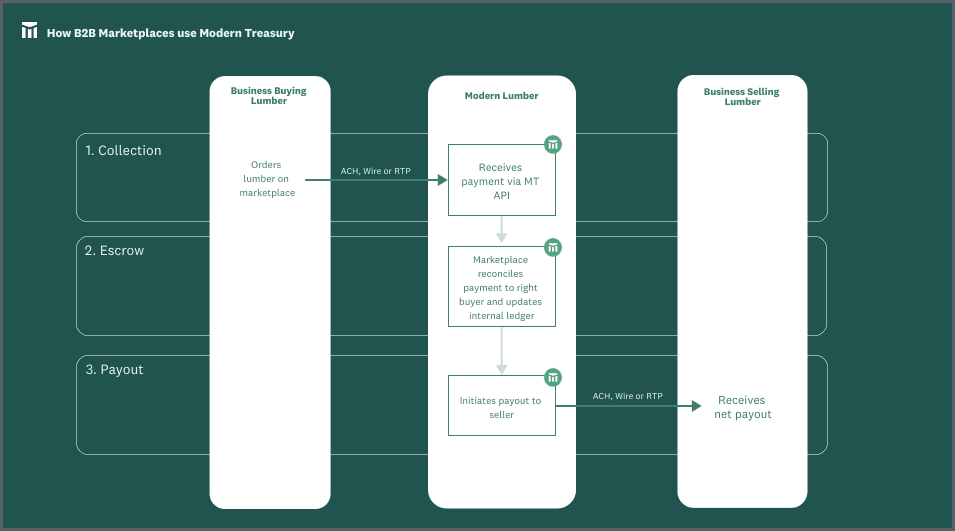
The result: Modern Lumber has more payment methods supported, flexible payment experiences, and faster payouts to sellers (immediately even with RTP).
Consumer Marketplaces Need Speed
B2C marketplaces are marketplaces that put a consumer on one side and either a business or an individual that behaves like a business on the other. Some of the largest marketplaces in the world fall into this category.
For instance, you might be starting Modern Tiny Homes, a platform to enable owners of tiny homes to rent out their properties to people online. Here is what we discovered is top of mind to businesses like them when it comes to payment operations:
- Pay vendors faster: When marketplaces have individual business owners or small businesses on the supply side, getting paid in 5-7 days is an eternity. Most third-party senders will need that time to get vendors paid because they hold money in between transactions. We don't. The money comes directly out of Modern Tiny Homes bank account, so their suppliers can get paid in 24 hours if our marketplace uses ACH or immediately in the case of RTP.
- Manage complexity: As Modern Tiny Homes scales they start paying thousands of vendors across multiple services or products and in multiple geographies, which can quickly get complicated. They can use Modern Treasury to not only initiate and manage bank payments with code but also have complete visibility on all payment statuses and
- Attach services: Many consumer marketplaces already hold balances for users. By keeping funds in the platform, enabling gift cards, or lending against balances, people will likely keep using Modern Tiny Homes. Having a ledger of balances is the foundation for that.
The flow of funds for Modern Tiny Homes using our service would look like this:
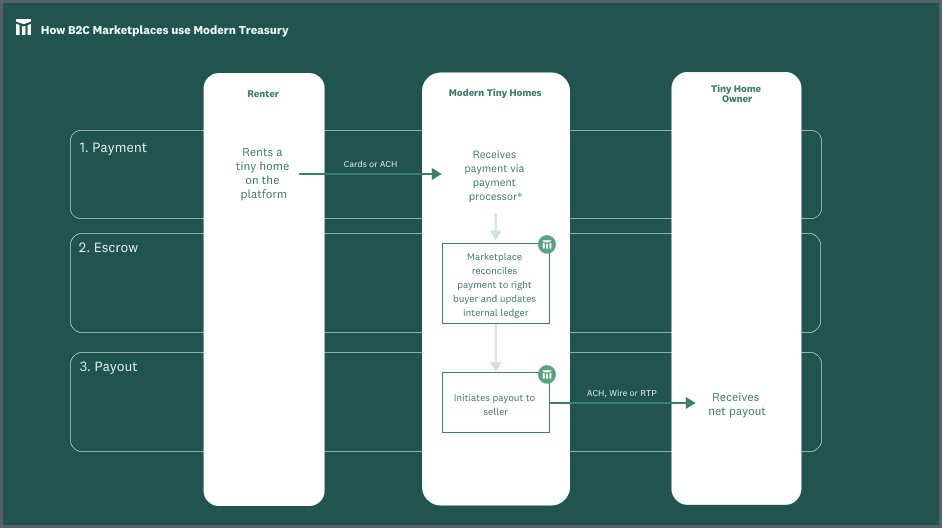
Modern Tiny Homes can also use Modern Treasury to receive ACH payments on their website.
Though the actual process is a bit more complicated, this covers the most critical steps. A consumer marketplace can pay vendors faster, integrate with their bank more efficiently, add services on top of their core offering. Several marketplaces in this category take payments from customers using credit or debit cards, but Modern Treasury can work alongside payment processors.
For more detail, you can read about the experience of one of our customers, the fastest growing B2C Marketplace for RV rentals, Outdoorsy.
Peer-to-Peer Marketplaces Need to Store Value Seamlessly
Let's use a fictional company - Modern Bay - as an example. They are a marketplace for used goods where people can sell directly to other people. There are many types of peer-to-peer marketplaces: from classifieds to social networks, but for the sake of this discussion, we'll be focusing on marketplaces that facilitate the exchange of goods and services between people.
Top of mind for Modern Bay probably is:
- Holding balances for users, which need to be clearly visible and always up to date. From a design perspective, it's also better if the ledgers are double-entry so they can see both where funds came from and where they went to. And if balances can be manipulated programmatically via API, even better.
- Payouts need to be seamless: In today's world of push-to-card and immediate Venmo transfers, people expect to be paid right away and not in 2-3 business days. RTP is the perfect payment method here, as settlement is immediate.
Modern Treasury can help Modern Bay keep balances for users in their marketplace, as well as streamline payouts:
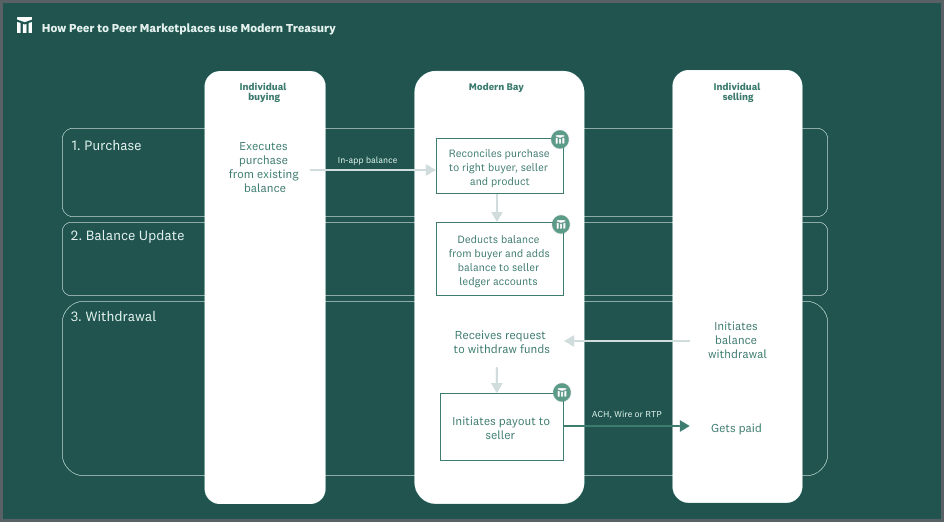
Using Modern Treasury leads to seamless back-office payment operations, given a robust API and strong controls to make both engineers and finance team members happy.
These examples highlight just a few of the ways marketplaces use Modern Treasury to manage money and track balances between buyers and sellers at scale. If you're interested in learning more, about how we can help your marketplace scale, reach out to us.
Get the latest articles, guides, and insights delivered to your inbox.
Authors

Lucas Rocha is the PM on the Ledgers product, driving strategy for the company’s database for money movement. Before Modern Treasury, Lucas worked in VC at JetBlue Technology Ventures and Unshackled Ventures. He earned his MBA from Harvard Business School and his bachelor’s degree from Northeastern University.
